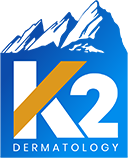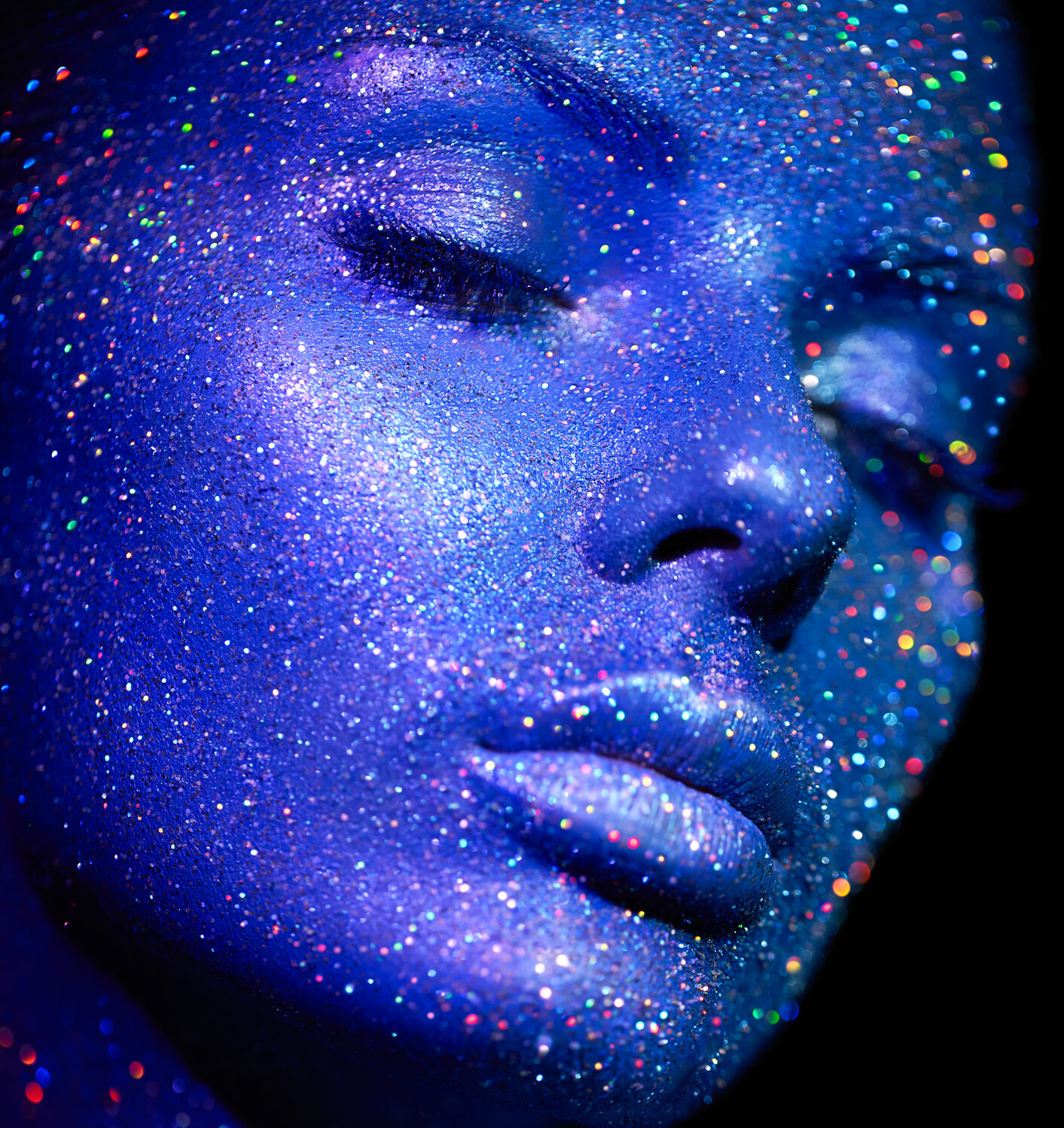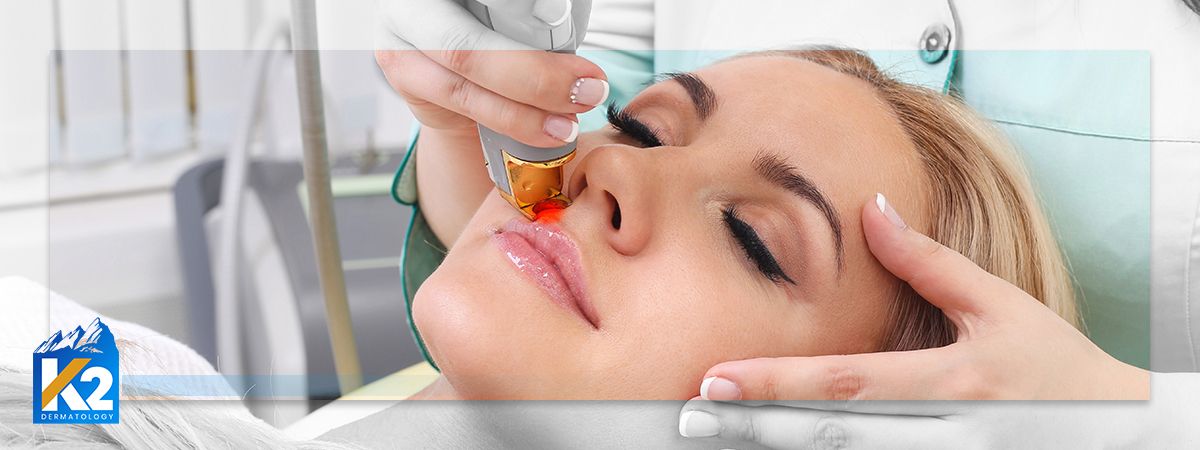
Laser/IPL in Boulder
Forget about those annoying age spots.
At K2 Dermatology in Boulder, we use the latest in laser and Intense Pulsed Light (IPL) technology to minimize or remove imperfections on your skin. If you’re looking for IPL in Boulder to treat vascular lesions, pigmented lesions, or other skin conditions, we offer advanced solutions tailored to your needs. Call K2 Dermatology to schedule an appointment today!
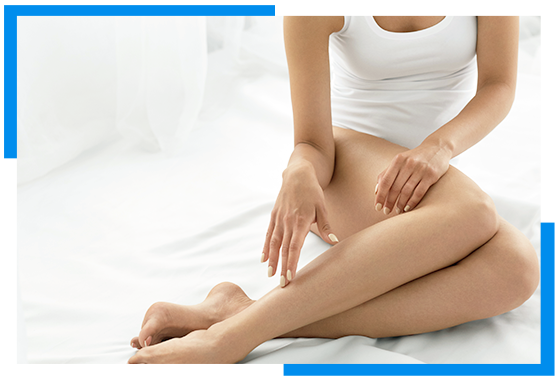
You can use laser or IPL to reduce or remove the appearance of:
- Age spots
- Sun damage
- Freckles
- Birthmarks
- Rosacea
- Broken facial blood vessels
What is IPL Treatment?
IPL treatment is a non-invasive, light-based therapy used to address a variety of skin conditions. Unlike traditional laser therapy, which focuses a single wavelength of light, IPL uses multiple wavelengths of light energy to target specific pigments in the skin. This makes it highly effective for treating vascular lesions, pigmented lesions, and the damaging effects of sun exposure. Whether you need IPL treatment in Boulder for sun damage, scars, or redness from broken blood vessels, we can develop a customized treatment plan based on your skin type and condition.
How IPL Works
The IPL procedure delivers pulses of light energy that penetrate the skin without damaging the surface layer. The light energy is absorbed by unwanted pigment or blood vessels, breaking them down and allowing your body to naturally remove them. This process helps improve skin tone, reduce discoloration, and promote the regeneration of healthy skin cells. IPL treatment can be used on various skin types and treated areas, including the face, neck, chest, and hands.
When combined with laser treatment, IPL can address even more blemishes and birthmarks are no match for these treatments.
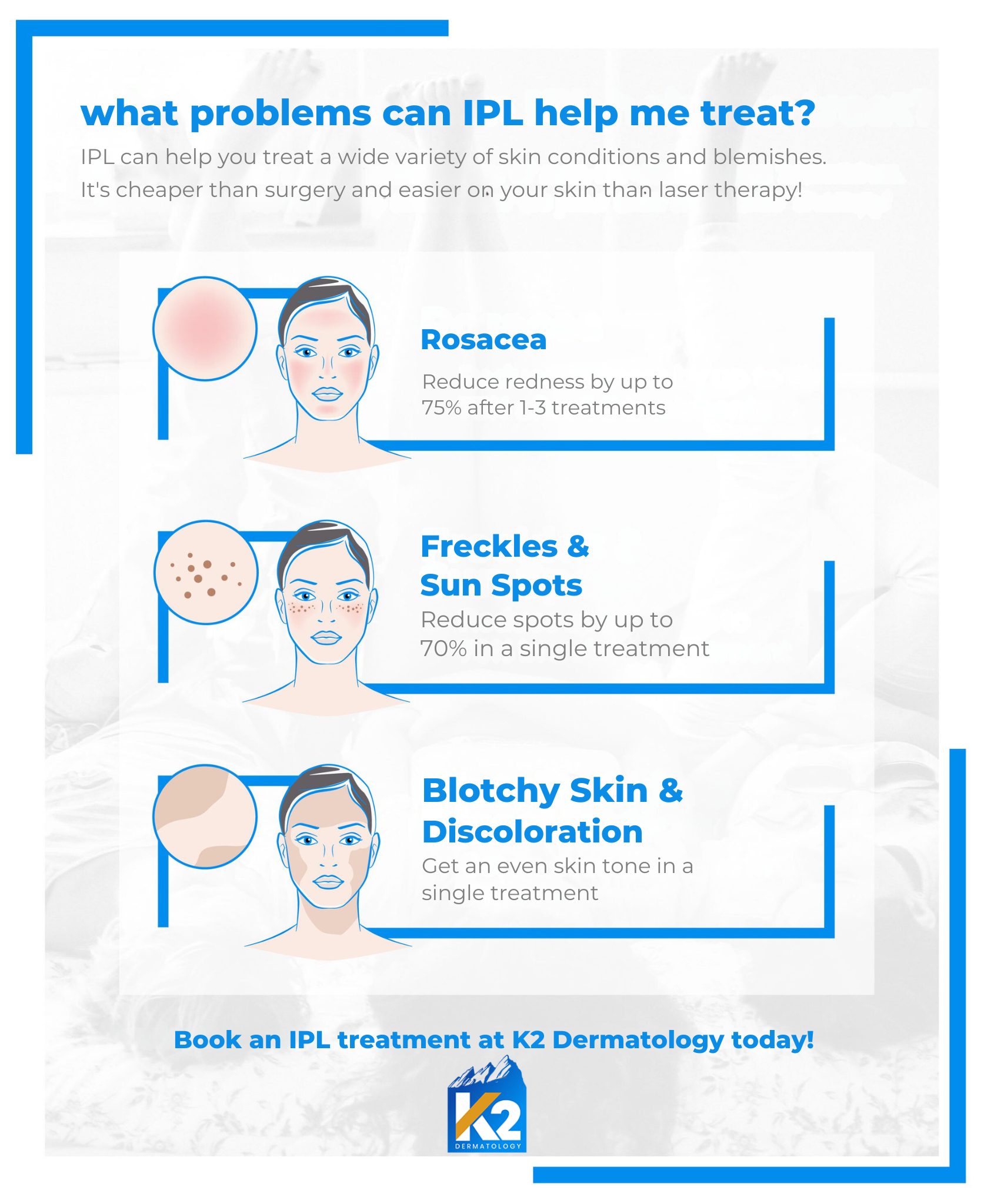
What’s The Difference Between IPL And Laser Treatments?
IPL and laser treatments are similar and can address similar problems, but they differ in how they target your skin. Laser treatments focus just one wavelength of light on your skin, while IPL uses light of several different wavelengths, similar to the flash of a camera. In treatment terms, IPL is like a shotgun — IPL light is scattered and less precise than a laser. This makes it less damaging to your skin, as IPL penetrates down to the second layer of your skin, the dermis, without damaging the top layer, the epidermis. Lasers are your sniper rifles — precise, and focused, but with a greater risk of damaging your skin via treatment.
The light from these treatments is absorbed by the pigment in your skin cells, which is converted into heat that is then used to destroy unwanted pigments that cause freckles, sun spots, and other skin conditions.
Another practical difference between laser and IPL is that, unlike lasers, IPL can treat a range of skin conditions at once by using multiple wavelengths of pulsating light during treatment. The light in IPL is designed to target certain colors in your skin, so you’ll likely see some evening of your skin tone as a result of IPL treatment, even if that wasn’t your primary reason for seeking treatment.
Call (303) 444-8100 to learn more or to schedule a consultation.
Benefits of IPL Treatment
- Reduces redness and vascular lesions associated with rosacea and broken blood vessels by targeting small blood vessels beneath the skin, helping patients suffering from persistent redness achieve a clearer complexion.
- Fades sun damage, age spots, and freckles by breaking down excess pigmentation, evening out uneven skin tone, and promoting a more uniform appearance.
- Improves overall skin tone and texture by stimulating collagen production, reducing the appearance of fine lines, and enhancing the smoothness of the skin for a refreshed and healthy look.
- Addresses scars and pigmentation issues by encouraging the regeneration of healthy skin cells, helping to diminish discoloration and refine skin texture over time.
- Non-invasive with minimal downtime, making it a convenient treatment option for patients suffering from various skin concerns, allowing them to resume daily activities shortly after the procedure.
How IPL Treats Sun Damage and Supports Skin Health
Prolonged sun exposure can cause significant damage to the skin, leading to visible and underlying health concerns. Sun damage not only contributes to cosmetic issues such as age spots and uneven pigmentation but can also increase the risk of more serious conditions, including pre-cancer lesions. When left untreated, sun damage leads to skin cancer by altering the DNA within skin cells, resulting in abnormal growth patterns.
Intense Pulsed Light (IPL) therapy is an effective treatment for addressing sun-induced damage at various stages. By targeting excess melanin and small blood vessels, IPL helps to break down hyperpigmentation associated with sun exposure, reducing the appearance of age spots and sun-induced redness. Additionally, IPL’s ability to stimulate collagen production supports the skin’s natural repair process, improving overall skin health and resilience.
For patients with extensive sun damage, IPL can play a preventative role by addressing early warning signs before they develop into more serious conditions. By treating pre-cancer lesions and sun-related discoloration, IPL assists in maintaining healthier skin while reducing the long-term risks associated with cumulative UV exposure. Regular dermatological evaluations, combined with IPL treatments as part of a comprehensive treatment plan, can help mitigate the damaging effects of the sun and promote long-term skin wellness.
If you have concerns about sun damage and its potential impact on your skin, the dermatologists at K2 Dermatology can evaluate your condition and recommend an IPL treatment plan based on your unique needs. Protecting your skin from further sun exposure and seeking professional care can significantly reduce the risks associated with sun-induced damage.
How To Prepare For Your Procedure
Before your IPL procedure at K2 Dermatology in Boulder, our dermatologists will inspect your skin and give you a more personalized idea of what to expect from treatment. Be sure to tell us if you have inflammatory acne or eczema, as both conditions can affect your healing post-treatment. Depending on your situation, your dermatologist may recommend you avoid specific activities, medications, or other products for up to two weeks before your treatment.
In general, to have a successful IPL treatment, you should avoid the following before your procedure:
- Waxing
- Tanning beds
- Direct sunlight
- Chemical peels
- Collagen injections
- Aspirin, Ibuprofen, and other drugs that increase your risk for bleeding
- Any products containing Vitamin A or glycolic acid
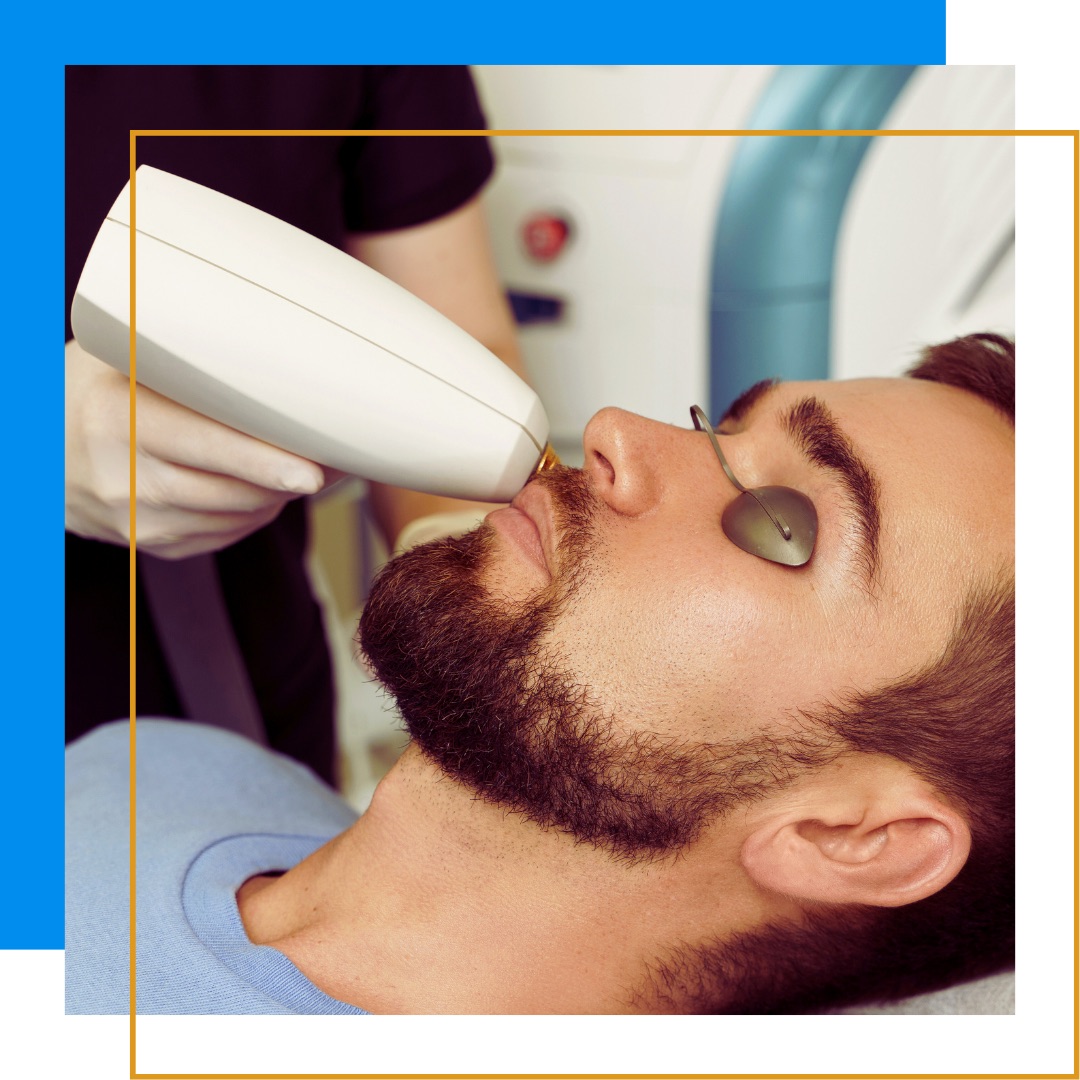
What To Expect During The Procedure
IPL treatment is a relatively short procedure. To begin, your K2 dermatologist will thoroughly clean the area you’re targeting with your IPL treatment. Once the skin is clean, they apply a cool gel to reduce discomfort during the treatment. From there, the IPL device begins applying light pulses to your skin. The dermatologist will also have you wear dark glasses to protect your eyes from light flashes during the procedure.
As your skin is treated by IPL, you may notice that the light pulses feel like they’re stinging. Some past patients have compared the sensation to being snapped with a rubber band. This sensation is completely normal, and we do our best to minimize any discomfort you may feel. If you’re worried about pain before treatment, we can give you some numbing cream to apply beforehand.
Depending on the size and location of the target area of your body for treatment, your IPL session should last between 20 to 30 minutes. You shouldn’t require any downtime after the procedure, though the treated area may feel similar to having a sunburn for four to six hours after treatment. In these cases, you can always apply an ice pack or cool washcloth to soothe the irritation.
You may notice that the skin in your treated area appears red or bruised after surgery, but those symptoms will subside two to three days after your treatment. The brown spots on your skin may get larger as you recover, but you should expect them to peel off within a few weeks.
As your body recovers and heals in the weeks following your treatment, treat your skin gently.
- If your skin hurts, do not apply makeup to it
- Use moisturizers to aid your skin’s recovery
- Protect yourself with sunscreen, and be cautious about it — the skin in your treated area will be particularly sun-sensitive as it heals, and you don’t want to reverse the good the IPL treatment is doing for your skin
- Use facial cleansers designed for sensitive skin
Post-Treatment Care
Following your IPL treatment, it’s essential to protect your skin from sun exposure and follow a skincare regimen that promotes healing. We recommend:
- Avoiding direct sunlight and using a high-SPF sunscreen
- Using gentle, non-irritating skin cleansers
- Applying moisturizers to support skin healing
- Refraining from using harsh exfoliants or undergoing additional skin treatments until fully healed
